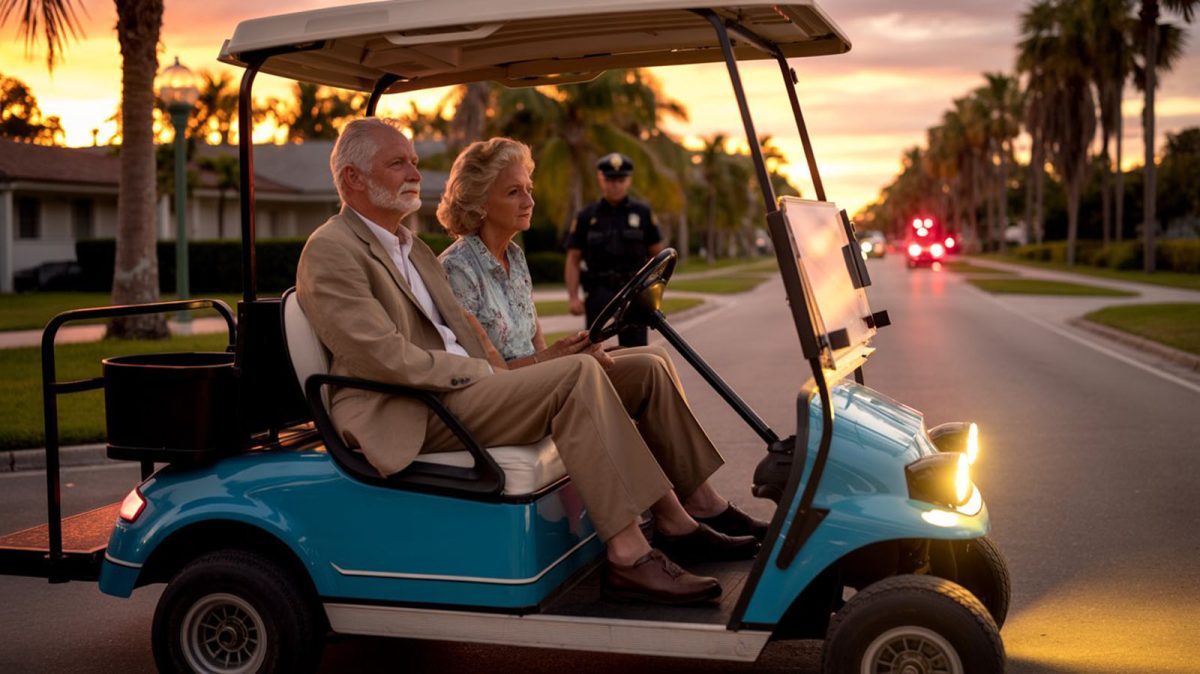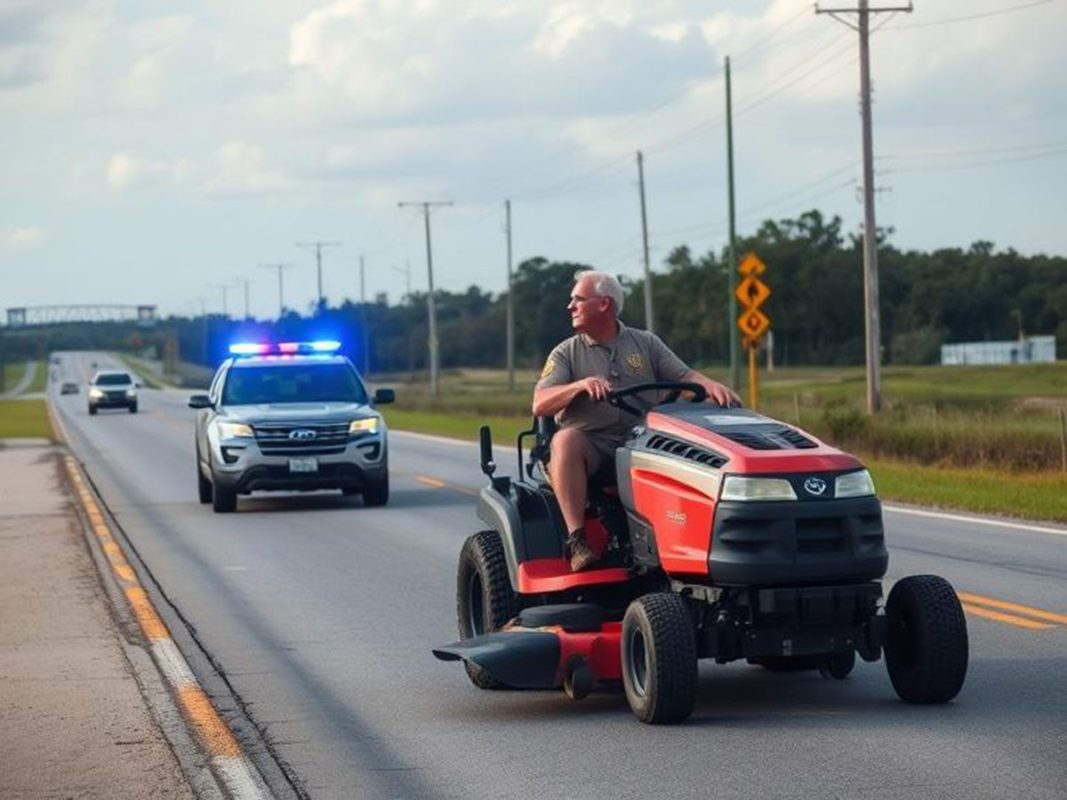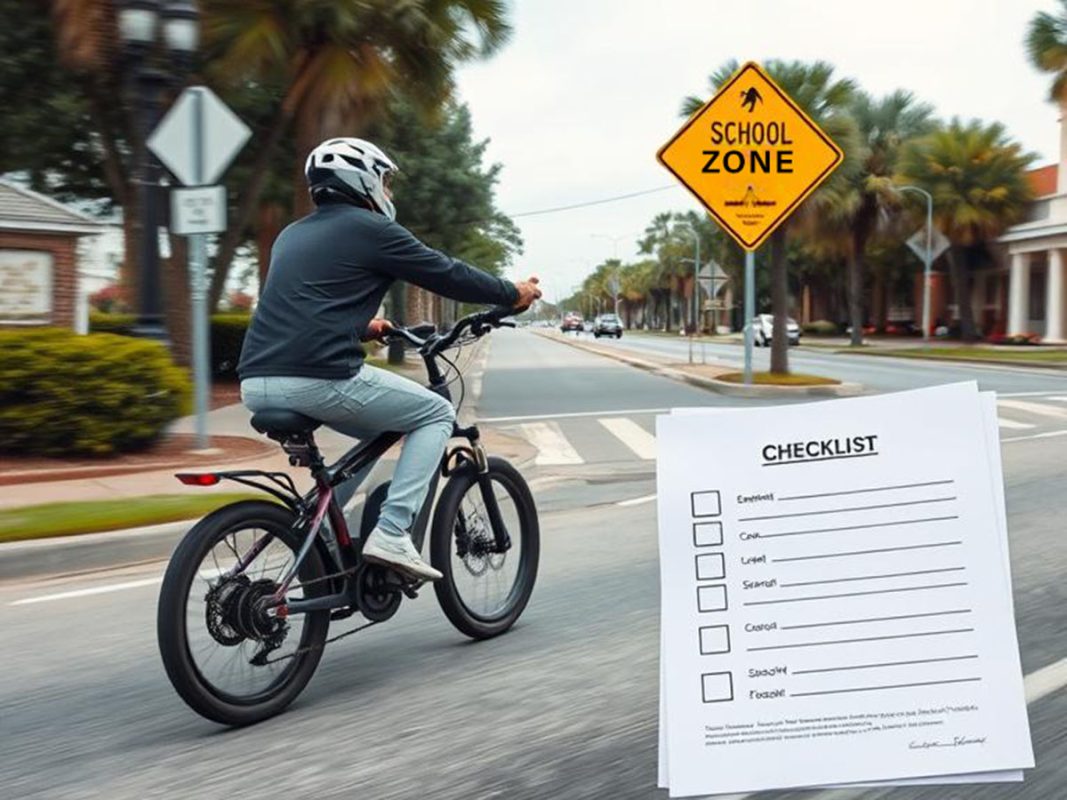How Golf Carts, Scooters, Mopeds, and Lawn Mowers Can Trigger DUI and Driving While Suspended.
Introduction
Florida law defines “motor vehicle” broadly. Many people think DUI or driving while license suspended only applies to cars. That is a mistake. Self‑propelled devices like golf carts, scooters, mopeds, and lawn mowers can trigger the same laws if used on roads or places open to the public. Engine type, top speed, and where the device is driven matter. Knowing the line helps prevent charges and helps build defenses if an arrest already happened.
Quick Answer:
Florida generally treats any self‑propelled vehicle not on rails as a motor vehicle, with a few exclusions. Golf carts have their own rules and can become “low‑speed vehicles” if modified. Mopeds and scooters can require a license and registration depending on engine size and speed. DUI applies to “vehicles” in places open to the public, and DWLS applies when a license is required to operate on public roads
Why the definition matters
The legal definition decides whether a stop leads to DUI or driving‑while‑suspended charges. It also affects whether the officer needed a license for that device and whether the location counts as “open to public traffic.” A small classification mistake can be the difference between dismissal and a conviction.
Key Florida definitions in plain English
Motor vehicle: Florida defines this broadly as any self‑propelled vehicle, not on rails or a guideway, excluding vehicles moved only by human power and certain specific devices like electric bicycles. The label covers more than cars and trucks.
Golf cart: State law defines a golf cart as a motor vehicle designed for golf courses and not capable of more than 20 mph. If a cart can exceed 20 mph, it may be an LSV with different requirements.
DUI coverage: DUI applies to driving or actual physical control of a vehicle anywhere in the state, including places open to the public like neighborhood roads and many parking areas.
DWLS coverage: Driving while license suspended involves operating a motor vehicle on highways while the license is canceled, suspended, or revoked, with penalties increasing for repeat or aggravated cases

Golf carts: When they trigger DUI or DWLS
Golf carts can be driven only on roads the local government designates, on some crossings, or in specific areas. If modified to exceed 20 mph, a cart can be treated as a low‑speed vehicle with car‑like equipment and registration needs. DUI can apply to a golf cart in places open to public traffic, and DWLS can apply where a license is required to operate the cart or LSV on the road.
Scooters and mopeds: engine size and speed matter
Florida groups some motor scooters under “motorcycle” due to the lack of a separate statutory definition. Operators need proper licensing. Mopeds have their own definition and can require registration and a driver license, depending on engine size and performance. If the device needs a license to operate on public roads, DWLS risk exists. DUI applies to any vehicle in places open to the public.

Lawn mowers and other self‑propelled, "objects"
Riding mowers and similar devices are self‑propelled. Using them on or across public roads can trigger enforcement. If driven in places open to public traffic, DUI can apply. If a license is required for that operation, DWLS can apply. Many stops start with shoulder travel, crossing a roadway, or riding between properties.
Edge cases and exclusions
Electric bicycles and some micromobility devices are excluded from “motor vehicle” definitions, but location rules and local ordinances still matter. The more a device acts like a car on public roads, the more likely standard traffic laws apply. Modified devices lose exclusions fast.
Local rules can add equipment or road‑use limits, including designated crossings for carts and LSVs. Always check posted signs and municipal codes in Lake and Sumter.
Driving while license suspended exposure
If the device requires a license on public roads, operating it while suspended can trigger DWLS. Officers assess roadway use, device classification, engine CCs, and whether licensing is required. An officer may misclassify the device or location, which creates defense options. Some golf cart operations are carved out by statute when used under specific conditions, but those carve‑outs are narrow
Defense angle: Challenge whether a license was required for the exact device at that exact location. Dispute knowledge of suspension where the statute requires it. Seek reduction to lesser non‑criminal outcomes where available.
DUI exposure beyond cars
DUI applies to vehicles statewide, including places open to the public. For carts, mopeds, and mowers, officers build probable cause from observed operation, physical signs, statements, and testing. Defenses often focus on whether the location was truly open to the public, whether the stop was lawful, and whether the device qualifies as a vehicle under the statute.
Defense angle: Attack the stop or detention, dispute the “vehicle” classification, and use the exact route and location to show the law does not apply as alleged.

Lake and Sumter County focus
Neighborhoods in Lake and Sumter Counties use golf carts on designated streets and crossings. Expect deputies to check speed capability, lighting, signals, and driver license status when carts leave approved zones. Patrols also look for modified carts that exceed 20 mph, which can tip them into LSV rules with full licensing and registration requirements.
For scooters and mopeds near main corridors, officers focus on CCs, tags, and endorsements. Keep proof of classification and speed limits to prevent misclassification during a stop.
What to do now: A Checklist
Do not explain or argue on scene. Ask for a lawyer. Record or note the stop details as soon as safe.myfloridalegal+1
Photograph the device, including any labels that show engine size/CCs and top speed. Keep manuals or spec sheets.gloverlawfirm+1
Write down the exact location of use and whether the area is open to public traffic. Note any signs allowing golf carts or LSVs.flhouse
Check current driver license status and any DMV notices. Save copies for the consult.leg.state
Call Jackson Defense Law for a quick review of classification, location, and defenses for Lake and Sumter cases.
Hire Mark Jackson!
Frequently Asked Questions
-
1. Can I get a DUI on a golf cart in a gated community?
Answer:
DUI applies to vehicles in places open to the public; many gated roads still qualify depending on access and use, so risk remains.
-
2. Does engine size decide whether my scooter is a motor vehicle?
Answer:
Engine CCs and speed matter for classification and licensing. Many motor scooters fall under motorcycle rules without a separate statutory definition, which means licensing is required.
-
3. Can I be cited for driving while suspended on a riding mower?
Answer:
If used on public roads in a way that requires a license, DWLS can apply; the key is location and whether the law requires a license for that use.
-
4. Can I be cited for driving while suspended on a riding mower?
Answer:
Mopeds have specific requirements; in most cases, a driver license is required to operate on public roads and registration may apply based on the model.
-
5. If my golf cart is modified to go faster, does that change the law?
Answer:
Yes. If it can exceed 20 mph, it may be an LSV. LSVs carry registration, equipment, and licensing requirements that raise the stakes during a stop.

